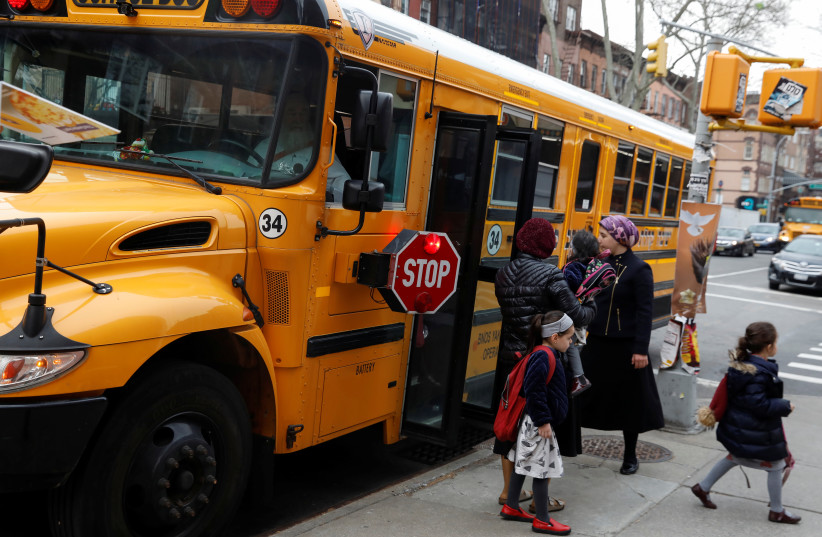New York’s Board of Regents voted unanimously Tuesday to pass new rules aimed at addressing longstanding allegations that scores of ultra-Orthodox private schools are flouting state law by failing to provide a basic education.
The regulations, which lay out a process for interpreting and enforcing a state law requiring private schools to provide an education that’s “substantially equivalent” to that offered in public schools, have been in the works for years and got the approval of the Regents’ Preschool to twelfth-grade committee Monday.
Naftuli Moster, the director of Yaffed, a group that’s been fighting for reform in Hasidic yeshivas, called the passage of the regulations “a giant step forward in ensuring that all children attending non-public schools receive the education to which they are entitled.”
“This widespread violation of the law and the resulting egregious educational neglect was known to officials at every level for decades,” Moster added.
The passage of the regulations marks a major milestone in the years-long debate over the appropriate role of state and municipal officials in regulating private schools accused of neglecting students’ basic academic needs.

That debate took on increased urgency after a New York Times story detailing the widespread educational failures and allegations of corporal punishment in Hasidic yeshivas serving roughly 50,000 students.
It remains to be seen how effective the new regulations — which offer private schools several “pathways” to prove they’re complying with state law — will be in cracking down on problematic schools.
Schools can demonstrate they’re in compliance with state law by getting approval from an independent accreditor or showing adequate progress on state-sanctioned standardized exams, among other options.
If they can’t meet any of those requirements, schools can submit to a review from the local school district, like the one led by the city Education Department that found 26 of 28 yeshivas under investigation weren’t meeting standards.
Enforcement of the law will still lie heavily with local school districts.
Nathaniel Styer, a spokesman for the city Education Department, said, “We believe these regulations put an undue burden on our public school system,” but added “we will faithfully implement all NYSED regulations.”
State Education Department spokeswoman Emily DeSantis said the agency will “continue to work with all stakeholders as they endeavor to adhere to the new regulations.”
Defenders of the yeshivas have forcefully opposed the regulations from the start, and criticized Tuesday’s vote as an incursion on religious freedom.
“The state’s confirmation that it intends to dictate the curriculum and faculty at private and parochial schools is deeply disappointing and we oppose it,” said Parents for Educational and Religious Liberty in Schools, a group that advocates for yeshivas.
“Those who want state control can choose the public schools,” the group added. “Parents who pay for a private or parochial school education do so because they believe in the mission and educational approach of those schools’ leaders.”
